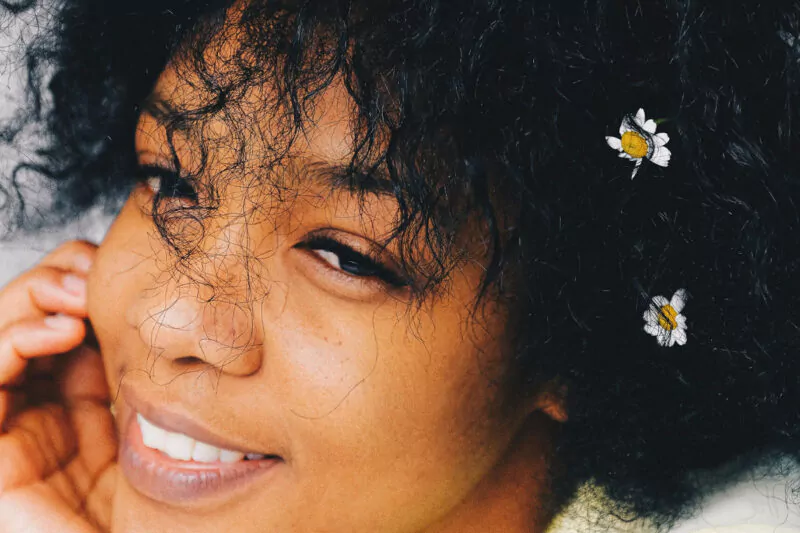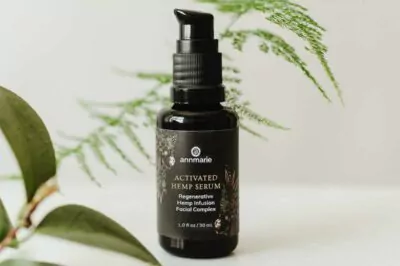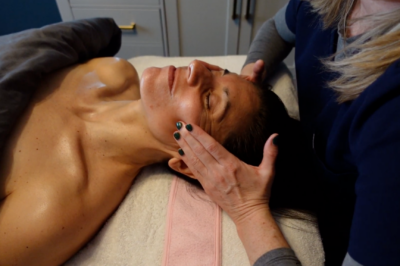Table of Contents[Hide][Show]
Vitamin C is a vitamin that is vital for your body’s natural healing process, and the body needs it to form cartilage, blood vessels, muscles, and other organs. Vitamin C is a great nutrient to use topically and even orally if we go by all the discoveries science has made. Since vitamin C is full of antioxidants, it is also helpful for skin care through topical application.
Vitamin C is a powerful antioxidant that helps protect our skin when we go about our daily lives. It is common to see compromised skin because of exposure to environmental stressors, but by using a serum with vitamin C, you get much-needed protection against such pollutants and harshness that would otherwise be hard to avoid. Besides skin care, vitamin C also does wonders for hair and the body. For hair care, specifically, using vitamin C on your strands will bring about immense benefits, like stronger, healthier-looking locks.
Benefits of Vitamin C for Your Hair

If you’re looking to improve certain qualities of your hair, vitamin C is a great ingredient to explore. Due to its strong antioxidant properties, this ingredient helps tackle any hair issues you may currently be facing, as well as creates a solid foundation for stronger hair to grow into the future. Read below for some of the amazing benefits that your hair will get and what vitamin C does for your hair once you start applying it vitamin C.
Healthy scalp
Because it’s rich in antioxidants, vitamin C can help prevent damage to your scalp caused by environmental factors. The scalp is sensitive, and you can’t have healthy hair without a healthy scalp. Vitamin C helps restore a healthy scalp, which is one of the initial steps to more radiant hair.
Neutralizes damage to hair caused by environmental stressors
Whether you choose to use vitamin C topically or orally, it will provide you with antioxidants. In topical application, they are helpful not only for healthy hair but also for the scalp. Antioxidants in vitamin C help protect your hair from damage caused by environmental factors, like issues with hair formation and growth, as well as temporary redness in the scalp.
Boosts hair shine
Vitamin C is a go-to tool for illumination, especially if you have dull hair. By using vitamin C topically, you’ll be able to restore the shine in your hair. This shine is a result of a healthy scalp and healthy hair.
It may help with hair loss
When you use vitamin C on your hair and scalp, it interacts with a hormone known as DHT. This hormone is responsible for hair loss. Vitamin C, on the other hand, reduces the effects of DHT by suppressing it, which prevents hair loss.
Fight off dandruff
A dry and unhealthy scalp mainly causes dandruff. When you start using vitamin C, this ingredient helps to remove debris and buildup from your follicles, which fights off dandruff and encourages the scalp’s natural process of new hair growth.
Prevent premature greying of hair
Using vitamin C on your hair can increase the levels of glutathione antioxidants which reduce the stress imposed on the hair follicles leading to premature greying of hair. Also, you may notice that once one has a vitamin C deficiency, they will most likely experience greying hair, so introducing more vitamin C into your hair care can help combat this occurrence.
Combat against hair loss
Vitamin C may boost other components in the scalp and body, which helps in growing strong hair. After using topical vitamin C for a while on your hair, you will notice how strong and healthy your hair becomes, making it much more resilient against breakage and brittleness.
Signs of Vitamin C Deficiencies In Your Hair
Your hair will always demonstrate to you when it needs more vitamin C. There are tell-tale signs that you have vitamin C deficiency by the way your hair looks. These include:
Bright red hair follicles
Your body will respond to a vitamin C deficiency with broken capillaries, which result in bright red spots surrounding the hair follicle.
Bent or coiled body hair
When your body is deficient in vitamin C, your hair’s natural protein structure can deform and respond by growing in bent or coiled shaped strands. While this symptom is usually a tell-tale sign of a vitamin C deficiency, it can easily go missed due to a higher probability of these strands with compromised structure breaking off or falling out.
What Types of Hair Is Vitamin C Best for?
Vitamin C benefits all hair types, especially those with dull hair and hair that experiences frequent breakage. If you have treated your hair, such as coloring or perming, it is essential to use vitamin C to boost the look of hair health, as chemical-based hair alterations can cause weaker, compromised strands.
How to Use Vitamin C for Hair

To maximize the efficacy and benefits of vitamin C on your locks, the best method is to topically apply a vitamin C hair product on your scalp and hair follicles. To apply, add your vitamin C hair product to your scalp, massage it a little and, depending on the instructions of the product used (which we recommend following closely), determine if it is best kept as a leave-in treatment or to be washed off prior to shampooing (some products may have multiple instructions if its function is versatile).
There are different ways you can incorporate vitamin C into your hair care routine, like applying a high-quality hair serum or oil, or using a shampoo and conditioner that features organic and wildcrafted herbs, high in vitamin C, as another option.
When looking for the correct vitamin C for your hair, ensure that the product is designed precisely for use on hair and not for the face. Facial vitamin C products could potentially contain too many ingredients that can be overwhelming on hair or have a heavy consistency. For best results, read and follow the instructions of the product you are using, since not all vitamin C hair products are created the same. This way, you are left with the results you’re looking for—shiny, radiant hair—rather than feeling heavily greasy from too much product or not seeing anything happen from too little product.
Conclusion
Vitamin C is a great ingredient that’s beneficial for our general health and beauty, as it helps with both hair and skin care. It’s a favorite for a reason and would be a wonderful addition to your beauty ritual if you haven’t incorporated it already. If you have weak hair, try experimenting with clean products formulated with vitamin C to help beautify your hair and strengthen it. If you’re interested in using vitamin C for skin, you can read more to learn how to make homemade vitamin C serum.
Frequently Ask Questions
How often should I use vitamin C on my hair?
The frequency of using vitamin C on your hair depends on the formulation you’re using. Most of the products can be used twice or thrice a week. Too much use of vitamin C on hair can lighten and dry your hair. It may also cause your scalp to itch and flake. Always start with less and build up to a higher frequency to determine a product usage rate that works best for you.
Can excess vitamin C cause hair loss?
There are no studies associating excess vitamin C application and hair loss, whether vitamin C is used topically or consumed.
Does vitamin C help in hair growth?
Vitamin C is essential as it encourages the hair to grow, be thicker, and be more robust. Vitamin C creates a certain protein that promotes hair growth and combats the issues of hair loss.
Can You Remove Hair Dye with Vitamin C?
Yes, you can remove hair dye with vitamin C. This method is effective because Vitamin C’s acidic nature helps break down hair dye, allowing it to be washed out more easily. It’s a safe and natural alternative for those looking to fade or correct their hair color.







Leave a Reply